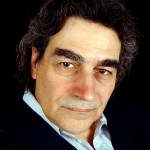
Journey implied in ‘Amoris Laetitia’ may never be over
Continued evolving conversation needed.
Local solutions and flexibility authorized.
Conscience is a concept to be respected

Journey implied in ‘Amoris Laetitia’ may never be over
Continued evolving conversation needed.
Local solutions and flexibility authorized.
Conscience is a concept to be respected

Why We’re Never Told Why We’re Attacked
Joe Lauria, ConsortiumNews.com, 9 April 2016
It seems to be an effort to cover up a long and ever more intense history of Western military and political intervention in the Middle East and the violent reactions it provokes, reactions that put innocent Western lives at risk. Indirect Western culpability in these terrorist acts is routinely suppressed, let alone evidence of direct Western involvement with terrorism.
 Why the Establishment Hates Trump
Why the Establishment Hates Trump
Trump has raised the great dispossession from impotence into the establishment’s face, and this is why he is a contagion on the American political scene. He is pervasively mocked, accused and slandered in non-stop public fireworks of ad hominem hits, but the counter-attacks never engage what Trump has set his sights on – the long stripping of America by corporate globalization selecting for the limitless enrichment of the very rich living off an ever-growing take from public coffers and the impoverishment of America’s working people.

Africans push back against Monsanto's modified proprietary seeds
5 Million Nigerians Oppose Monsanto’s Plans to Introduce GMO Cotton and Corn
One-hundred organizations representing more than 5 million Nigerians, including farmers, faith-based organisations, civil society groups, students and local community groups, have submitted a joint objection to the country’s National Biosafety Management Agency (NABMA) expressing serious concerns about human health and environmental risks of genetically altered crops.
 These women in Turkey saw the need for a different kind of news, despite the danger
These women in Turkey saw the need for a different kind of news, despite the danger
Founded four years ago, Jinha is an all-female, multilingual news agency spread across Turkey, Iraq and Syria. Its coverage is proving increasingly important in a region wracked by conflict and hardly notable for gender equality. Much of the focus is on women and children.

Someone in Congress evidently wants an update.
The Article V Convention to Propose Constitutional Amendments: Current Developments, March 29, 2016
After more than 20 years of comparative inaction,the past decade has seen a resurgence of interest in and support for the Article V Convention alternative.Advocacy groups across a broad range of the political spectrum are pushing for conventions to consider various amendments, including a revival of the balanced budget amendment proposed in the 1970s -1980s; an interstate compact that could call a convention,propose, and prospectively ratify, a balanced budget amendment; an amendment or amendments to restrict the authority of the federal government; and an amendment to permit regulation of corporate spending in election campaigns, which would nullify parts of the Supreme Court’s decision in Citizens United v. Federal Election Commission.
The Article V Convention to Propose Constitutional Amendments: Contemporary Issues for Congress, updated March 29, 2016:
This report identifies a range of policy questions Congress might face if an Article V Convention seemed imminent. Some of these include the following: what constitutes a legitimate state application? Does Congress have discretion as to whether it must call a convention? What legislative vehicle would be appropriate to call a convention? Could a convention consider any issue, or would it be limited to the specific issue cited in state applications? Could a “runaway” convention propose amendments outside its mandate? Could Congress choose not to propose a convention – approved amendment to the states? What role, if any, does the President have? What role would Congress have in the mechanics of a convention, including rules of procedure and voting, number and apportionment of delegates, funding and duration, service by Members of Congress, and other related questions?
See Also: